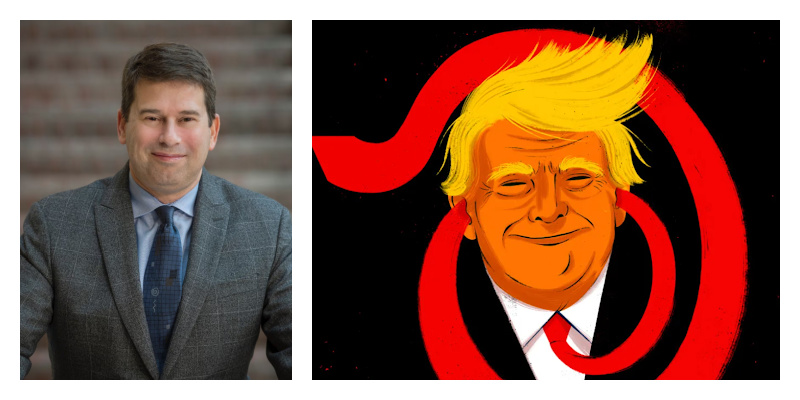
- This event has passed.
Daniel Drezner: Trump’s Foreign Policy and the Madman Theory
January 28, 2025 @ 2:00 pm – 3:00 pm
Please join the Fletcher Russia and Eurasia Program for a conversation with Professor Daniel Drezner about the foreign policy implications of President Donald Trump’s second term. Professor Drezner will examine the intellectual history and application of the madman theory in international relations, tracing its origins from former President Richard Nixon to Trump. He will explore how leaders’ perceived unpredictability can shape global negotiations, the successes and failures of Trump’s approach, and the broader implications for U.S. foreign policy.
The conversation will provide an overview of foreign policy highlights from Trump’s first term, assessing several case studies of Trump’s earlier use of coercive diplomacy, and consider how these tactics may apply to his recent pledges to resolve the Russia-Ukraine war. We encourage you to read in advance Professor Drezner’s recent article in Foreign Policy, titled “Does the Madman Theory Actually Work?” We also welcome you to review the madman theory’s origins and Trump’s recent Mar-a-Lago press conference remarks that highlight desires for territorial expansion, threats of steeper tariffs against Canada and Mexico, and opposition to windmills.
Please register via the following Microsoft Form to attend the event in person or let us know if you would like to attend virtually. Please contact us with any questions you might have about the event or if you would like to submit discussion questions for the speaker in advance.

Daniel Drezner is a Distinguished Professor of International Politics, a nonresident senior fellow at the Chicago Council on Global Affairs, and Co-Director of the Russia and Eurasia Program at The Fletcher School. Prior to joining Fletcher, he taught at the University of Chicago and the University of Colorado at Boulder. He has previously held positions with Civic Education Project, the RAND Corporation, and the U.S. Department of the Treasury, and he has received fellowships from the German Marshall Fund of the United States, the Council on Foreign Relations, and Harvard University. He has written seven books, including All Politics is Global (2009) and Theories of International Politics and Zombies (2011), and edited three others, including The Uses and Abuses of Weaponized Interdependence (2021). He has published articles in numerous scholarly journals as well as in The New York Times, The Wall Street Journal, Politico, and Foreign Affairs, and has been a regular contributor to Foreign Policy and The Washington Post. He received his B.A. in political economy from Williams College and an M.A. in economics and Ph.D. in political science from Stanford University.
